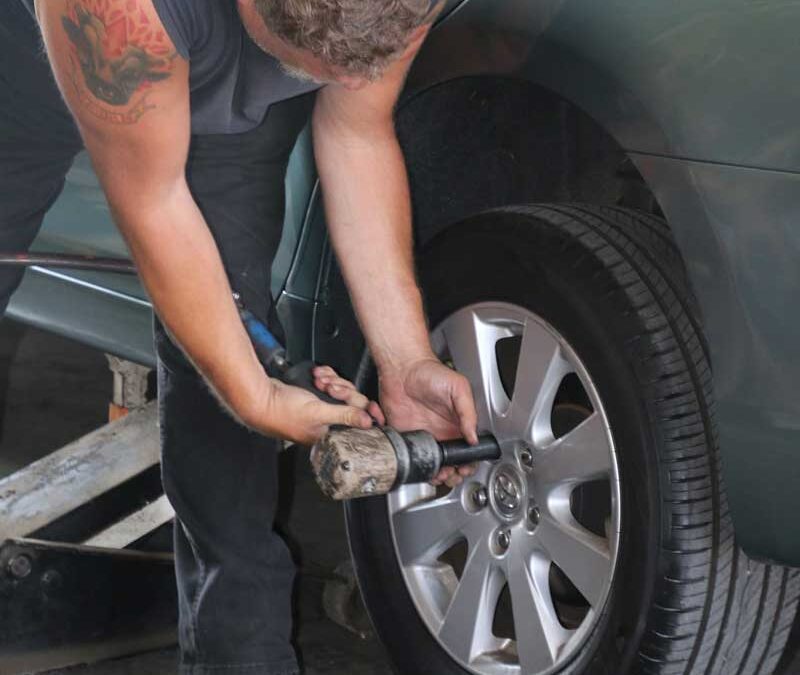Asking around, there seems to be some confusion about the differences between tire rotations and wheel alignments. When you factor in tire pressure and the ideal amount of tire tread (the ridges and grooves on the surface of your tires) for optimal traction, most people understandably throw up their hands. Who could keep all of this straight? It’s like trying to understand the rules of cricket! Car repair shops near me can help you understand how all of these factors work together.
Reasons Regular Auto Maintenance is Critical
The truth is that it doesn’t have to be this complicated and all of these things are related – e.g., rotating your tires should help promote even wear of the tread, and reduce the need to get new tires as frequently, while improving traction on the roads and highways. Simply put, low tire pressure is also related to premature wear of your tires and the need for more frequent tire changes.
It works like this – when your tire pressure is chronically low, too much of your tire’s surface area makes contact with the road. Having too much surface area gripping the road leads to premature wear and/or your tires overheating. Having the right amount of tire pressure – the number is actually listed on the inside part of the door rather than the tire – will keep the amount of wear even and prevent your tires from overheating.
So, if you’ve been dutifully following your manufacturer’s advice for tire pressure and recommended time between new tires, shouldn’t you be good to go? The truth is that the particular driving conditions you encounter every day as well as the way in which you drive will impact the amount of wear-and-tear damage done to your vehicle’s tires and the need for new tires.
Tire rotations – i.e., moving your tires from one location to another on your vehicle to promote even tire wear – and wheel alignment – i.e., adjusting the angle of your wheels back to the manufacturer’s recommended levels with the help of computers, cameras, LEDs, and other sophisticated equipment – will help your vehicle’s performance in a slew of different ways, but once the tread is truly kaput, then it might be time to think about getting new tires.
How Car Repair Shops Near Me Can Help
Car repairs shops have all of the high-tech gadgetry and Automotive Service Assocation- (ASA-) certified mechanics to perform tire rotations, wheel alignments, and reset your advanced driver assistance system (ADAS) after doing a wheel alignment. Trained, experienced mechanics can also take a look at your tires and tell you the factors that are contributing to wear and whether you need new tires.
Mechanics at car repair shops near me know that tires typically need to be replaced every 50,000 miles but that there’s no simple formula to telling when your particular tires are ready for the trash heap. Tread wear is a good general indicator of when to replace your tires, but tread wear might be uneven and tires are made from different materials; tires constructed from softer compounds will give you better braking power, but that increased braking power comes at the expense of longevity.
Aside from these kinds of structural differences in tires, the way that you drive can impact how often you need new tires or whether you might benefit from more frequent tire rotations. Driving along rough road surfaces (e.g., gravel roads in a pickup truck), taking corners quickly, and braking abruptly will all impact tire wear and the need for more frequent tire replacement. Surprisingly, tires will also degrade over time regardless of use.
The National Highway Traffic Safety Administration (NHTSA) says that drivers should replace their tires at least every six years irrespective of how many miles they put on their vehicles but mostly follow the manufacturer’s guidelines (e.g., every 50,000 miles driven) because those are specific to your vehicle’s make and model. Car repair shops near me can clue you in to all of the ways that tire rotation, wheel alignment, and the right tire pressure affect tread wear and the need for new tires. Schedule an appointment with All Around Auto Repair today.


